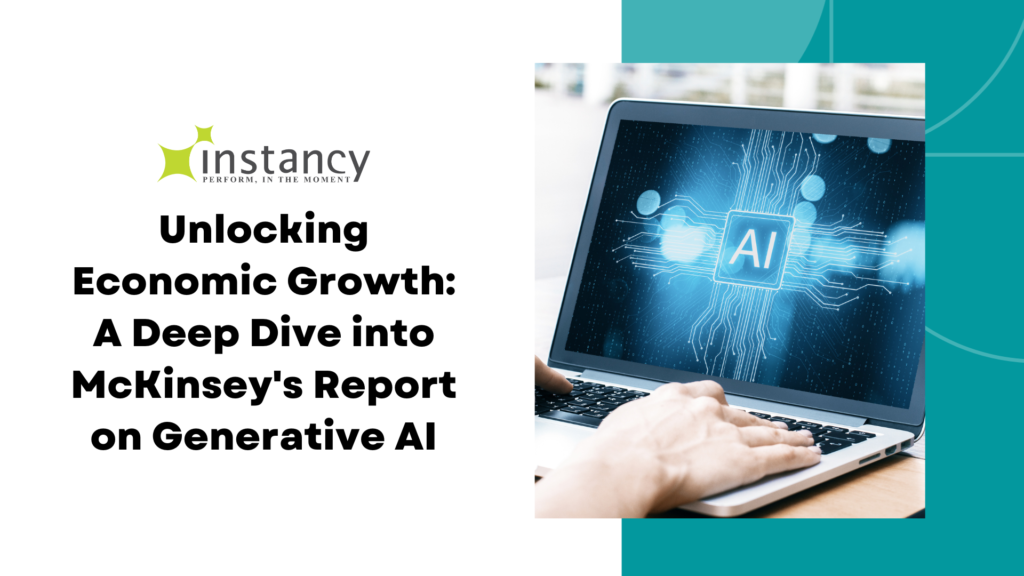In the ever-evolving landscape of technology, one name has stood out for its profound impact on the global economy: Mackenzie. Her groundbreaking report, aptly titled “The Economic Potential of Generative AI: The Next Productivity Frontier,” has sent shockwaves through industries worldwide. Let’s delve into the ten pivotal points from this eye-opening report that promises to reshape how we think about generative AI and its influence on the world economy.
- Trillions in Value: Generative AI tools, exemplified by OpenAI’s Chat GPT, are poised to revolutionize the global economy by adding trillions of dollars in value annually.
- Staggering Impact: McKinsey’s comprehensive analysis encompassed 63 applications of generative AI, revealing the potential to enhance the global economy by a staggering 2.6 to 4.4 trillion dollars. This is akin to the entire Gross Domestic Product (GDP) of the United Kingdom in 2021, which stood at 3.1 trillion dollars.
- Expansive Reach: The report highlights that generative AI’s impact could double if integrated into software for other unexplored tasks.
- Broad Assessment: McKinsey’s study meticulously scrutinized targeted applications of generative AI across 16 business functions and assessed its potential impact on approximately 850 job activities.
- Four Key Areas: A remarkable three-quarters of the potential value added from the cases examined by McKinsey fell within four transformative sectors: customer operations, marketing and sales, software engineering, and research and development.
- Universal Influence: Generative AI is not confined to specific industries; its profound impact is projected to ripple across all sectors.
- Key Beneficiaries: Industries such as banking, tech, and life sciences are poised to witness the most significant added-value boost. For instance, banking could experience an annual increase of 200 billion to 340 billion dollars, while retail and consumer packaged goods could benefit from 400 billion to 660 billion dollars annually.
- Changing Work Dynamics: Before generative AI tools like Chat GPT, it was estimated that AI technology could automate half of employees’ working hours. This estimate has now increased to 60% to 70% of workers’ time.
- Non-Generative AI: Not to be overshadowed, non-generative AI is also set to experience a substantial economic value increase, ranging from 15% to 40% annually, amounting to a staggering 11 trillion to 17.7 trillion dollars.
- Acknowledging Risks: While recognizing the immense economic potential of generative AI, the report is not oblivious to the risks associated with its adoption. Concerns include intellectual property rights, reliability, privacy, and security issues. It also underscores the technology’s potential to impact the workforce, potentially affecting specific groups and local communities disproportionately. Intriguingly, the occupations expected to experience the highest levels of automation from generative AI require higher levels of education, marking a significant shift from past technological advancements.
In conclusion, Mackenzie’s report on the economic potential of generative AI paints a promising but nuanced picture. While the benefits are immense and wide-reaching, addressing the associated risks and societal implications is essential. As generative AI continues to evolve, its impact on the global economy will undoubtedly be a topic of continued fascination and debate.
Instancy develops enterprise generative AI, learning, and knowledge management solutions, including personalized learning and performance support.



